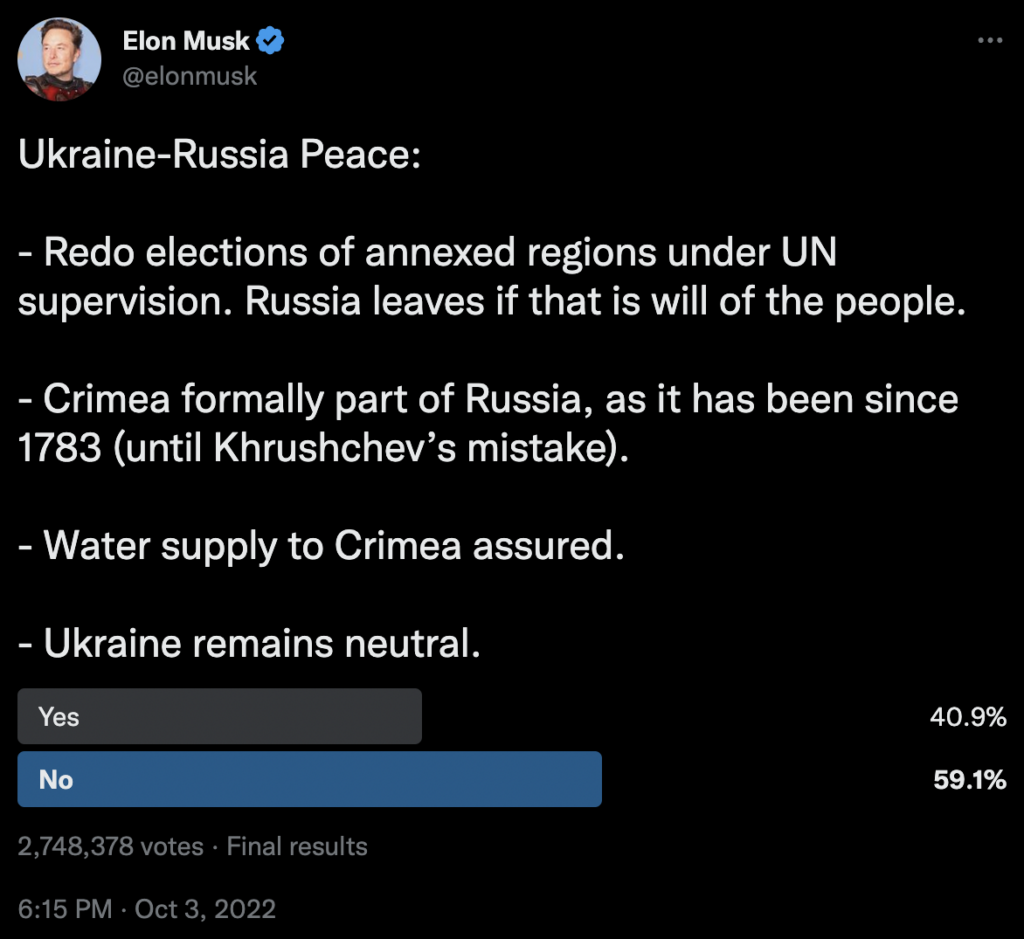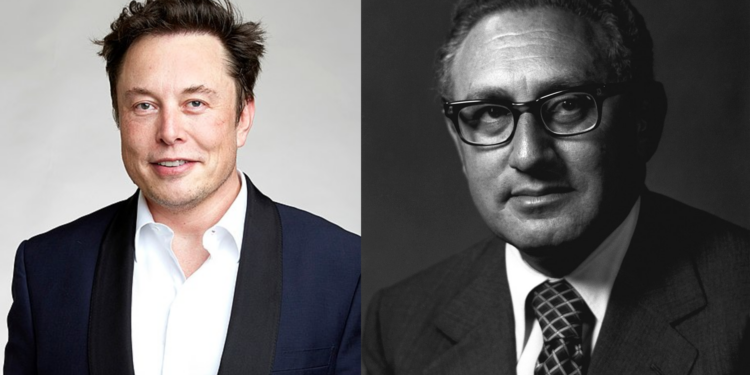At the beginning of October, Elon Musk put forward a peace plan for Ukraine. The plan came, like so many of Musk’s ideas, in the form of a Twitter poll:

It was not warmly received. In a particularly memorable tweet, Ukraine’s then-ambassador to Germany said, “Fuck off is my very diplomatic reply to you.”
Criticism focused on the first two points: that Russia’s sham referendums be redone under UN supervision, and that Crimea be formally recognised as part of Russia. Perhaps understandably, many Ukrainians and their Western supporters were indignant at the prospect of giving up any territory in exchange for peace.
Musk was told that “you clearly don’t understand the subject”, and it’s good that “you’re not in politics”.
Unlike Musk, one figure who cannot be said to lack understanding of international politics is Henry Kissinger. A veteran of the Cold War, he was ranked as the “most effective U.S. Secretary of State of the past 50 years” in a poll of scholars taken in 2015.
Writing in the Spectator recently, Kissinger outlined a peace plan remarkably similar to Musk’s – though with one key difference.
In May of this year, Kissinger notes, “I recommended establishing a ceasefire line along the borders existing where the war started on February 24th. Russia would disgorge its conquests thence, but not the territory it occupied nearly a decade ago, including Crimea.” He goes on:
If the pre-war dividing line between Ukraine and Russia cannot be achieved by combat or by negotiation, recourse to the principle of self-determination could be explored. Internationally supervised referendums concerning self-determination could be applied to particularly divisive territories which have changed hands repeatedly over the centuries.
In other words, Kissinger endorses both of Musk’s first two points – the ones that attracted so much ire on Twitter. Where Kissinger parts company with Musk is the issue of neutrality.
The war, he writes, “has mooted the original issues regarding Ukraine’s membership in NATO”. And as a result, “the alternative of neutrality is no longer meaningful”. (This represents a contrast with the view he took back in 2014.)
At the present time, of course, the prospect of any such deal being negotiated looks extremely remote. In a recent interview John Mearsheimer told Freddie Sayers: “There’s no deal to be worked out” so “both sides are going to fight this one out”. Further escalation, he observed, is “likely”.
The only circumstances where it seems possible a deal would be done is if the U.S. pressured Ukraine to accept one by threatening to withhold military aid. And that doesn’t seem very likely. So the conflict will probably drag on until one or both sides are exhausted.
If Kissinger believes there still is scope for negotiations, more detail on how to get there would be nice.
Stop Press: Niall Ferguson has written an article for Bloomberg U.K. in which he reflects on other aspects of Henry Kissinger’s Spectator essay on how to avoid another world war.













To join in with the discussion please make a donation to The Daily Sceptic.
Profanity and abuse will be removed and may lead to a permanent ban.